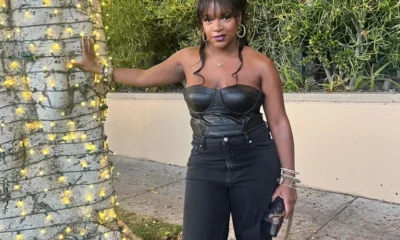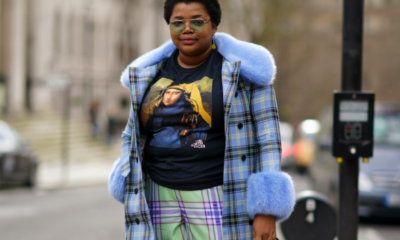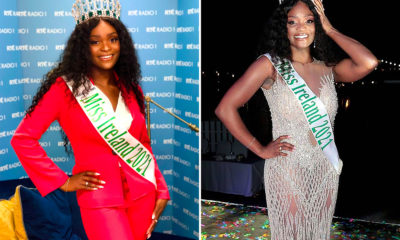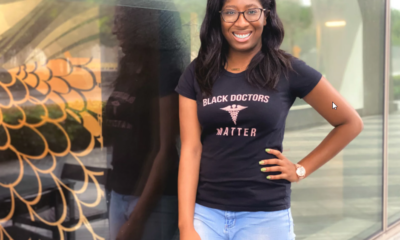Beauty and Health
GirlTrek’s Carmen Harris is proof that you can ‘change a generation of health in your family’
Epidemiologist Carmen Harris has seen how public health changes and improves lives.
Everybody in her family — with the exception of her dad — smoked. Her grandfather died of Alzheimer’s disease and lung cancer.
No one in her family smokes anymore.
When her aunts and uncles needed to lose weight, Harris saw them shed pounds. She grew up playing soccer and walking with her mother and sister. Her dad ran in 5K and 10K races, and he remains active today. Now, when Harris visits her aunts and uncles, she’s expected to hit the senior center with them.
“I’ve seen the beautiful side of when you change the expectations or you change the narrative,” Harris said. “You literally change a generation of health in your family.”
Harris is now the chief of social impact and strategic partnerships at GirlTrek, a nonprofit that encourages African American women to take control of their health, families and communities by walking. There are now 647 GirlTrek teams across the United States.
GirlTrek honors the sacrifices of women who came before them, including Fannie Lou Hamer, a civil rights crusader who died at 59 from complications associated with heart disease and untreated breast cancer. Both are chronic diseases, which GirlTrek is dedicated to preventing.
On Oct. 6, GirlTrek will celebrate what would have been Hamer’s 100th birthday. Women who are foot soldiers of #FanniesArmy will lead 100 walks for 100 minutes nationwide. GirlTrek’s national staff — including cofounders T. Morgan Dixon and Vanessa Garrison — will walk with local trekkers in Ruleville, Miss., Hamer’s hometown.
“We lost this woman way too soon due to health conditions, and that’s part of where GirlTrek comes in,” Harris said. “It’s this beautiful intersection between justice — how to honor the work that women are doing — and health.”
Eighty-two percent of African American women ages 20 and older are obese, according to CDC data from 2011 to 2014. The leading causes of death for black women are heart disease, cancer, chronic lower respiratory disease and stroke.
Part of GirlTrek’s mission is to change these statistics. Black families — including Harris’s — have dealt with generations of systemic oppression that …
Please read original article- GirlTrek’s Carmen Harris is proof that you can ‘change a generation of health in your family’


























